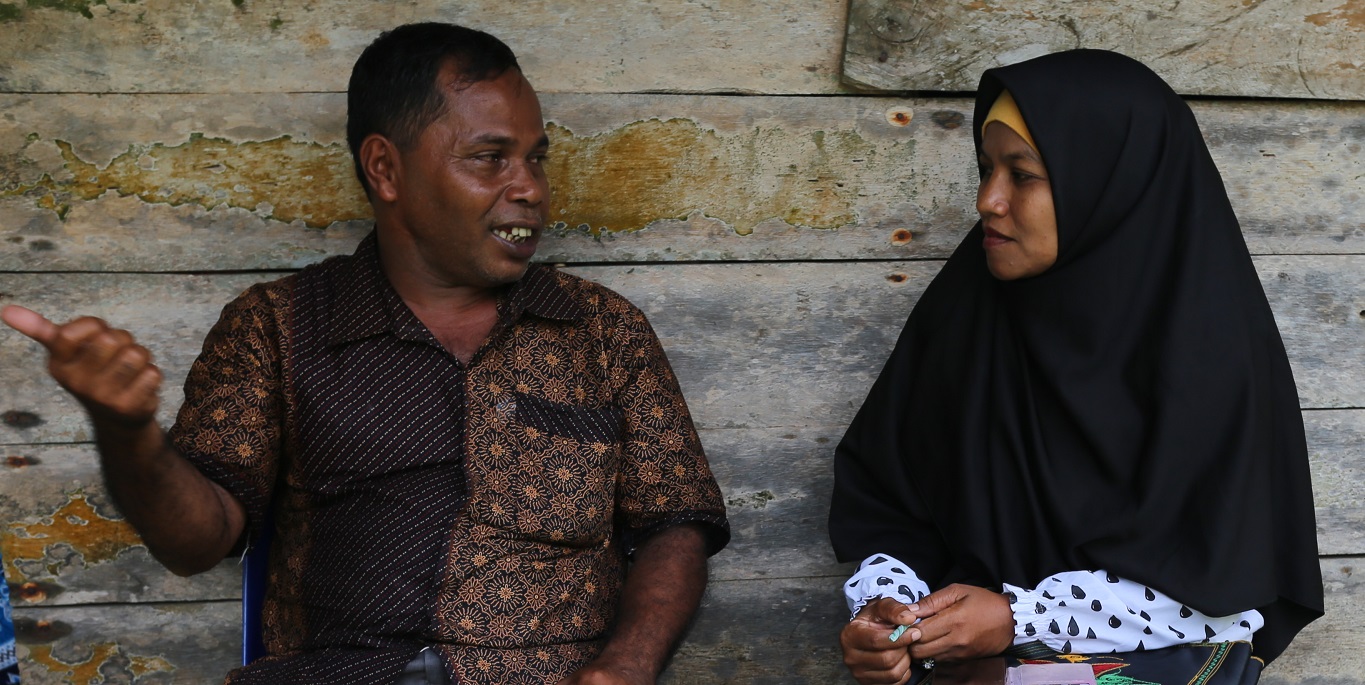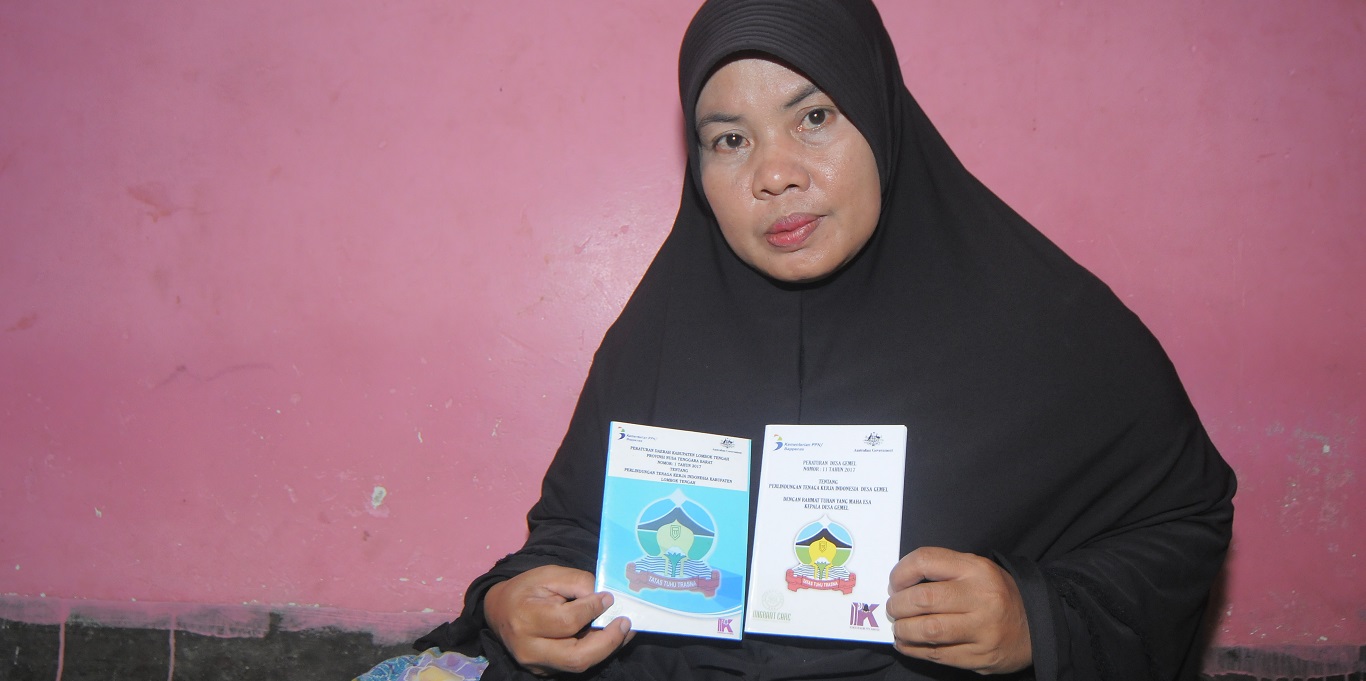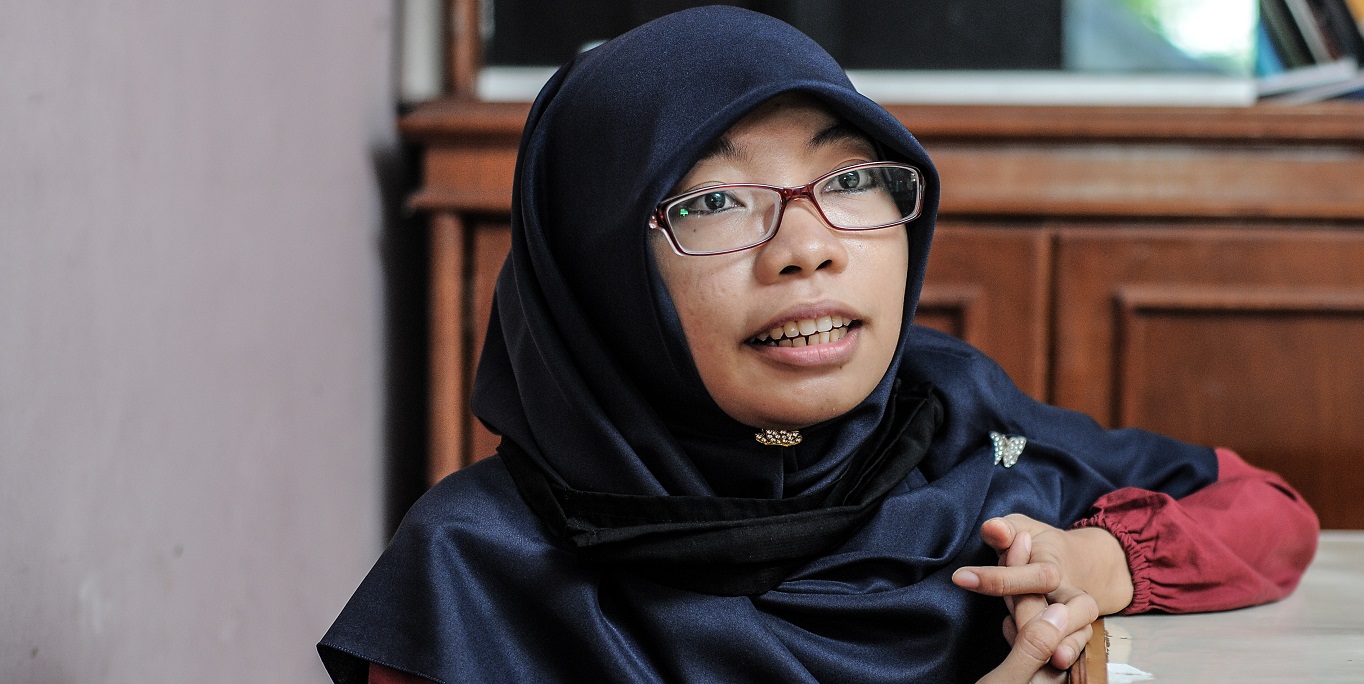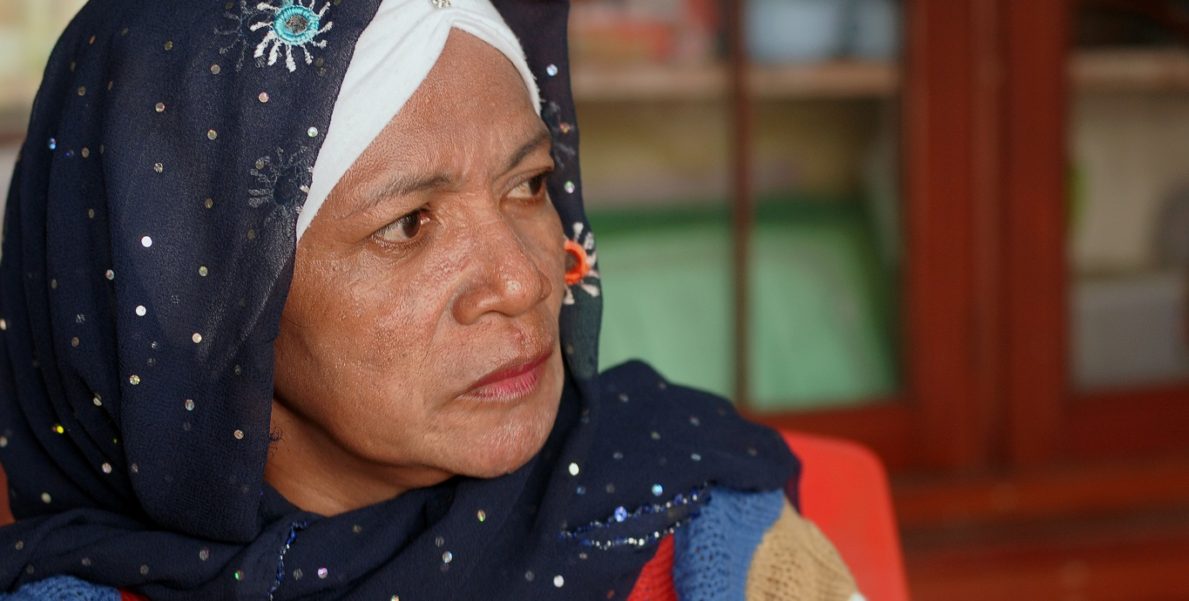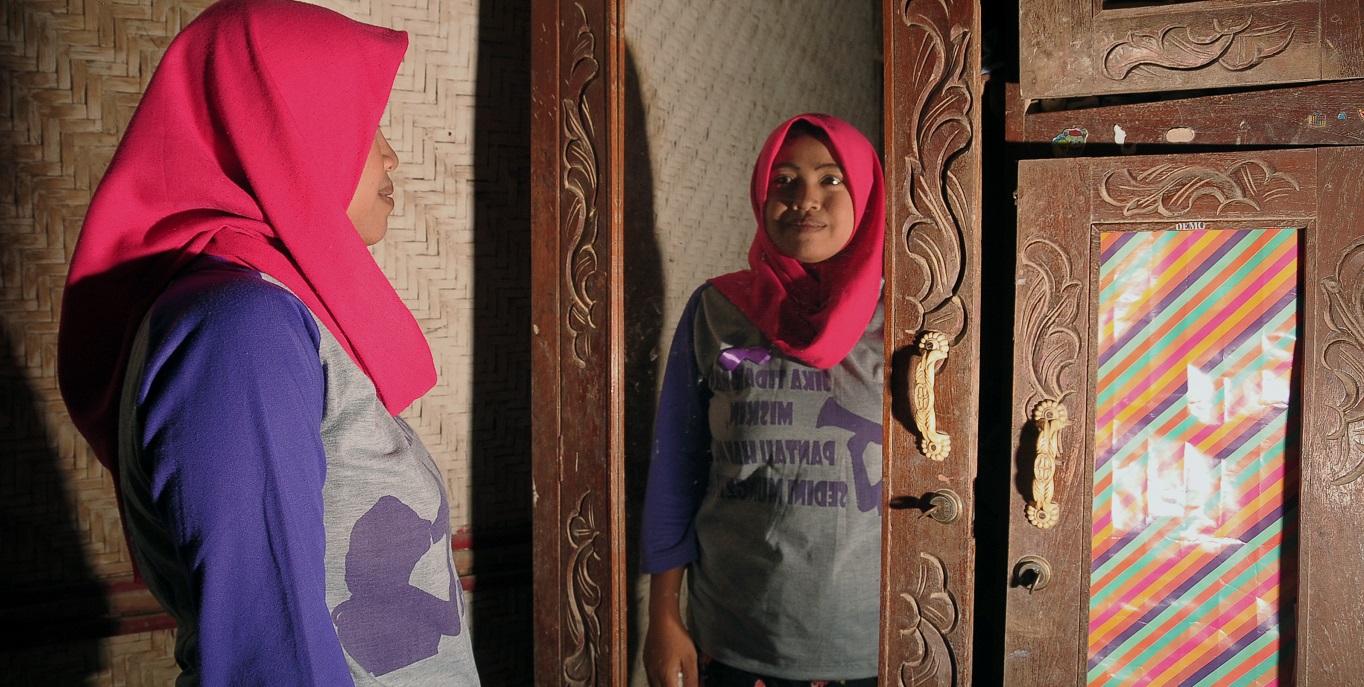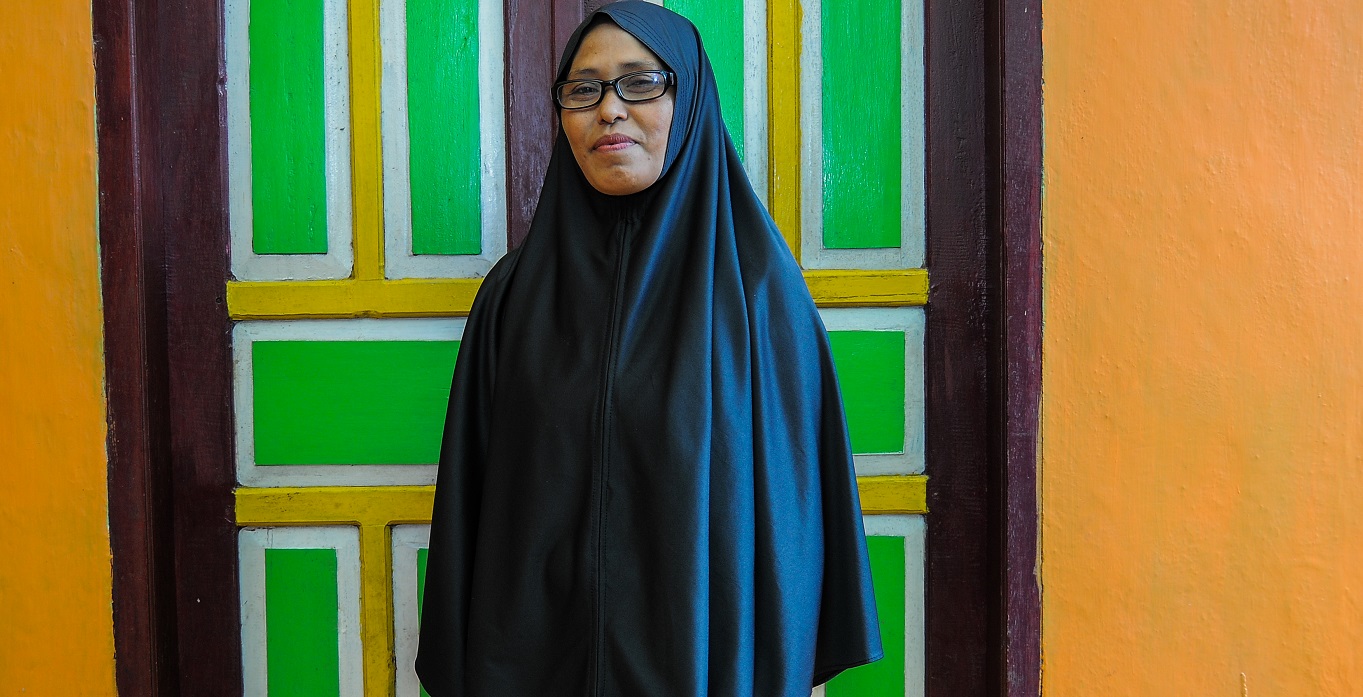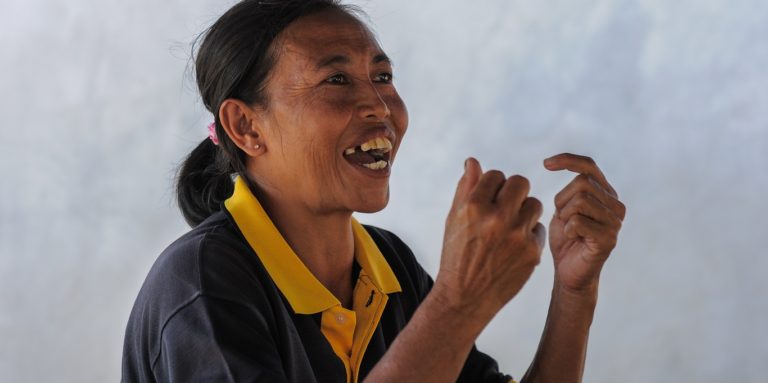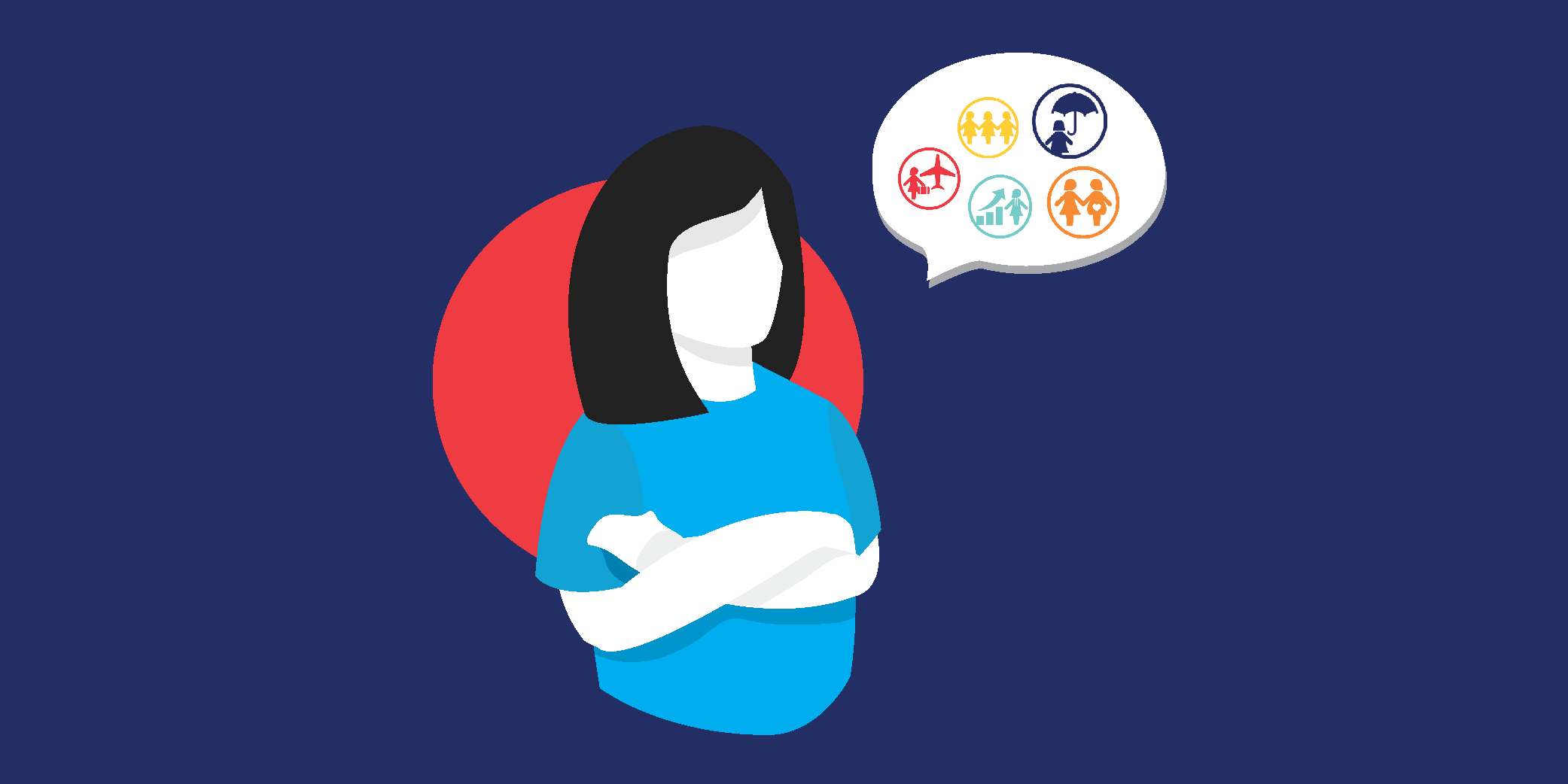Stories
Juliani: “Moving forward is my current life principle”
6 May 2018Penulis: admin
September 2014 would be a monumental, unforgettable month for Juliani, a 31-year-old home worker from Deli Serdang, North Sumatra. For the first time, she and several other home workers had courage to demand a raise. Also, these home workers have started to work together to improve their working conditions.
Juliani is now a different woman. Three months ago, she did not even know that what she has been doing for eight years from home is considered as work called home work. The terms of home workers is used to refer to industrial outworkers who carry out paid work from their homes, for firms/business or their intermediaries, typically on a piece-rate basis. Because home work is performed within the home, and often in isolation from other workers and the local community, home work tends to be invisible to the public eye despite their contribution to the economy.
Juliani has been sewing baby seats from her home for a nearby company, receiving 7,000 rupiah per dozen. The company provides necessary materials (fabric, foam and fringes fabric), and in addition to the sewing machine, she prepares her own equipment like needles, yarns and scissors.
On average, she can sew up to seven dozens per day, obtaining a monthly income ranged from Rp. 400,000 to Rp. 1.5 million depending on the orders. Her income has been a significant addition to her household income combined with her husband. Her husband, Sudiono, works as a casual construction worker and receives Rp. 600,000 to Rp. 2 million per month.
“I never had the courage to talk to my employer about my problems before. But I feel I have more knowledge and courage now, thanks to the trainings I received from Bitra,” she exclaimed.
Bitra, a civil society organization, is one of Implementing Partners of the ILO/MAMPU – Access to Employment and Decent Work for Women Project funded by the Government of Australia. Aya Matsuura, the Chief Technical Adviser of the ILO-MAMPU Project, said that home workers who are mostly women are particularly vulnerable because they lack adequate legal protection and work in isolation with weak bargaining power. They are engaged through informal arrangements without written contracts, and often receive less than the minimum wage, work very long hours, and have no security of employment. The use of certain equipment and materials which may be hazardous can expose not only the worker but family members including children to various safety and health risks.
After joining the organization, Juliani has actively participated in the trainings organized by Bitra. She learned about, among others, her rights as workers, relevant labour laws, gender equality, social protection and how to communicate and negotiate better. “At the beginning, I was so overwhelmed and afraid of losing my job, so I even thought of leaving the organization. But my mentors persuaded me to stay and to continue improving myself.” With more knowledge about their rights as workers, Juliani and her fellow workers felt confident to approach their employers, demanding a raise. “The collectors as the representatives of the company were upset with our demand. They did not want to discuss it,” said Juliani.
Yet, she refused to give up. She then personally talked to the collectors again in a sensible manner, explaining that the demanded raise was to cover the increased costs for transportation and materials. “Applying what I have learned from the trainings, I asked them to consider our demand since we have never asked for a raise,” she added. In the end, her courage yielded a result. She was told that the company would increase the rate to 8,000 rupiah per dozen, not only for her but also for all members of her group. “We are all so excited with this good news.”
Juliani is now a changed woman. She is inspired to be a strong, smart and brave woman. She also set up personal goals to continuously strengthen her skills, get better income and improve her working conditions. She even talked to her husband about equality and how she appreciated her husband contribution to the house works and her contribution to their household’s economy. “Moving forward is my current life principle,” stated Juliani. (*)



